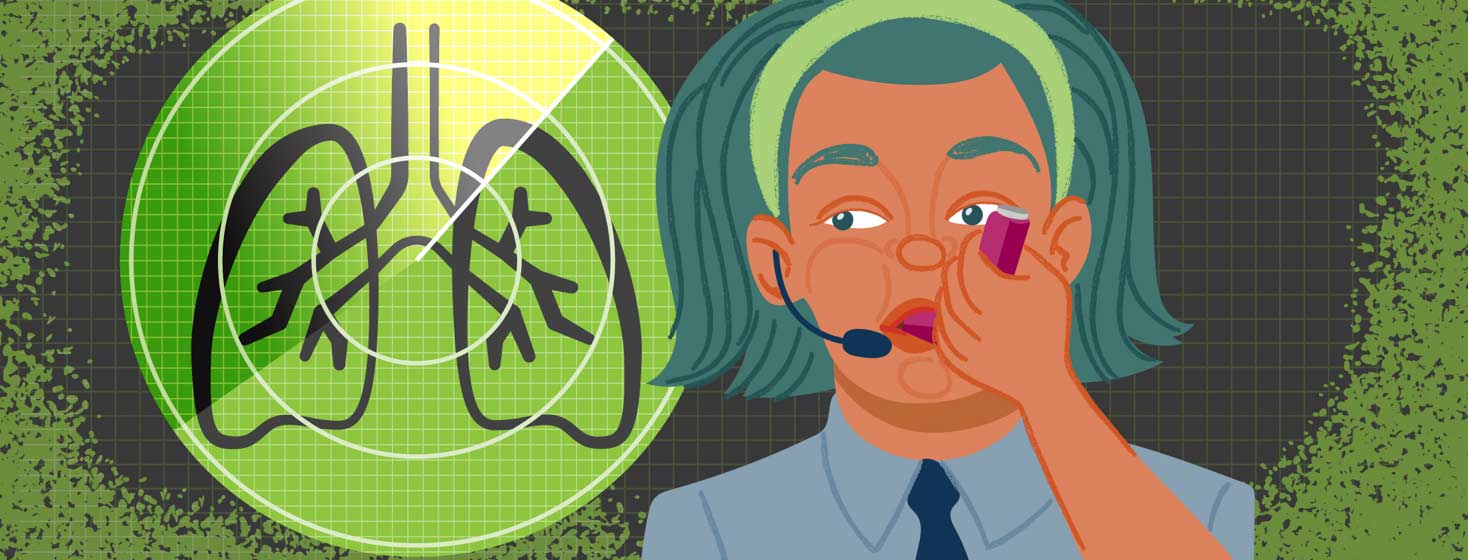Understanding Well-Controlled Severe Asthma
Like all asthma, severe asthma isn't just one "thing." Just as asthma itself can be mild, moderate, severe, allergic, non-allergic, exercise-induced, not exercise-induced--the fancy term for the differences experienced between people that technically have the same diagnosis is heterogeneous--severe asthma is similarly not one-size-fits-all!1
Control: It’s in the definition
For the first many years after I was diagnosed with asthma, I attempted to reach asthma control per the asthma guidelines. Every time my doctor asked how often I was using my rescue inhaler, it was always above 2 or 3 times a week, despite all the other medications I was on. These included a combined inhaled corticosteroid/long-acting bronchodilator, an add-on inhaled corticosteroid (ICS), an anti-cholinergic, and at times, montelukast (Singulair), too.
It turns out, control in itself is something totally different for those of us with severe asthma. In fact, control and loss of control is right in the ERS/ATS definition of severe asthma, stating:2
Severe asthma is defined as asthma that requires treatment with high dose inhaled corticosteroids plus a second controller and/or systemic corticosteroids to prevent it from becoming “uncontrolled” or that remains “uncontrolled” despite this therapy.
Oh my God, it was exactly me. I regularly tried to step down my ICS dose, only to have to bump it up again within a week or so of decreasing it due to worsening asthma symptoms.
So, if control of severe asthma doesn’t mean what it does for non-severe asthma, what does it mean?
Defining controlled severe asthma
When I asked my specialist about my asthma phenotype, she described me as having well-controlled severe asthma. So what does that mean exactly?
Unfortunately, we have to deal in a series of negatives here. Having controlled severe asthma means we don’t check any of these boxes, but still meet the definition of having severe asthma:2
- Poor symptom control, defined as:
- An Asthma Control Questionnaire (ACQ) score “consistently” less than or equal to 1.5 OR
- Asthma Control Test (ACT) score “consistently” less than 20 OR
- “Not well-controlled” based on National Asthma Education and Prevention Program or Global Initiative for Asthma guidelines over 3 months
- Frequent severe exacerbations, which means requiring 2 or more bursts of oral corticosteroids of more than 3 days in the previous year
- "Serious exacerbations" in the previous year, meaning that at least one exacerbation required:
- Hospitalization and/or
- Intensive care unit (ICU) care and/or
- Mechanical ventilation
- Airflow limitation, or reduced pulmonary function, defined as an FEV1 of less than 80% off bronchodilator medications.
If even one of these criteria are met, this is considered uncontrolled severe asthma.
As such, controlled severe asthma still requires care with high-dose inhaled steroids PLUS another medication. However, steroids will have been used one time or less in the past year, there will be no inpatient hospital care required, symptoms are under relatively decent control as measured by validated tools, and pulmonary function measured as FEV1 is able to be maintained over 80% of predicted without bronchodilators.2
Severe asthma: A shift in perspective
When I was first diagnosed in 2008, I did a lot of research on my own to understand my asthma with hopes I could just breathe better. I remember reading severity criteria online and not fitting anywhere properly. I read research articles, such as Dr. Sally Wenzel’s cluster analysis for severe asthma, and I didn’t fully fit in any at that point, either.
Fortunately, in 2014, Dr. Wenzel and her colleagues published the guidelines I’ve referenced in this article. While I’ve referenced this document dozens of times in the last 7 years, it remains exciting that ongoing research will help us continue to better classify asthma phenotypes and, more importantly, respond to treatment that should hopefully allow for quicker diagnosis and a less turbulent path to appropriate treatment.
And of course, while it takes some of us years to find the right combination of treatments, it’s important to note that some people may not be able to achieve asthma control by any definition on currently available treatments. This is why it’s so important we continue to advocate for funding additional research into new treatments for asthma, including severe asthma, so all of us can live healthy and productive lives.

Join the conversation